Odoo vs ERPNext
It is very critical for you to know that you have chosen the right software for your infrastructure before investing in engineering and time to develop a new application for your company. In the context of operational excellence, increased efficiency, optimization of capital, and so on, you can always go for an application that can fly along with your business creation and offer you a package of business advantages. You should completely develop your software application or ERP, one that brings daily security updates, bug fixes, as well as customizations when they are required by your company.
Indeed, as no software is flawless and full in itself, customization has great significance when it comes to ERP selection. To match your business workflow, they will need some tuning and return you with desired results.
This role is what makes solutions that are open source better than proprietary ones. Your business is open to customization possibilities that meet all your demands with open source solutions. Even, as the company matures over time and grows to higher heights, open-source solutions remain scalar. However, this is not feasible with proprietary, the product remains deficient to develop with modifications, forcing you to modify the application and expensive migration ahead.
The advantages of choosing an open-source ERP are not restricted here. As you dig deeper, you find infinite value proposals such as rapid prototyping, no supplier lock-in, high speed of growth, the large developer community's interplay, constant updates, better security, and so on.
It is held by many and continuously tracked, evaluated, and updated as an open-source license. With open-source applications, relative to closed solutions, there is a guarantee of continuous development and extended market possibilities.
The businesses should ensure that the desired system does not expire with open source ERPs and is continually updated for the better. In comparison to closed ones, the wellbeing of the population and the pace of growth are open to the public. Open source, therefore, requires high protection and transparency.
In addition, enterprises are not limited either by the supplier or the technology with open source solutions. They either need not fear the price rise of the seller or rely entirely on the seller for goods or services. With no fear of being redundant, corporations will continue their business operations.
Open source ERPs are therefore stronger at the fundamental level than closed-source ERPs. Open-source remains superior to closed-source, from improved customization and integration options to enhanced support and security.
Odoo vs ERPNext Comparison
With this note, we take you to the comparison of Odoo and ERPNext, two open-source solutions. Indeed, Odoo vs. ERPnext is a close competition as they belong to the same open-source ERP solution family. Open source solutions that include full-featured business management tools are both Odoo and ERPNext. They come with the fundamental business management skills for both SMEs (Small & Medium Enterprises) and larger corporations.
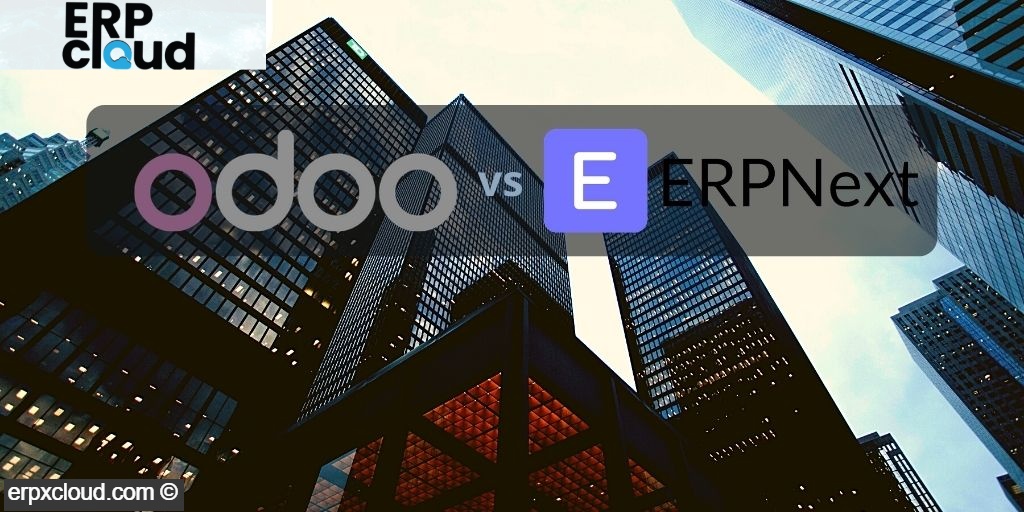
In both solutions, the integrated management architecture helps organizations to document all company transactions in one location. Both ERPs act as a strong backbone for the company in carrying out its activities, from handling the accounts to human relations, to track revenues and transactions effectively. Odoo and ERPNext both ensure real-time activity. In addition, the apps offer greater openness, accountability, and business operations visibility. The detailed reports created by the apps simply give you excellent control of your growing business. With no fear of the increasing number of users and increased workload, Odoo and ERPNext can be used happily by companies.
Enterprises hoping to harmonize and streamline their business processes are frequently confused between Odoo and ERPNext as both offer a similar set of functions. Don’t worry we carry you a thorough contrast between the two, helping you outweigh yourself which is better- Odoo or ERP Next?
Basically meaning, Odoo vs ERPNext is not a combat, to begin with. There isn't a lot to look at between Odoo and ERPNext in terms of its feature as both applications fill their very own unique needs. Also, similar to any other technology, they have their disadvantages as well. Yet again why people search for a comparison between two is- just as they fall to the same open-source family.
In core side panels, both Odoo and ERPNext possess all those characteristics that a strong opensource ERP must-have. Both the software come integrated with modules like Accounting, Inventory, Procurement (Sales), Purchase, Manufacturing, Human Resources, Customer Relationship Management (CRM), and so on. Also being an open-source solution, both Odoo, and ERPNext, provide alternatives to customize the basic source code. One may take the support of an ERP vendor to tweak the application and make it suit your business preferences and working conditions.
However, you need to realize that both are different entities and vary in terms of their features, roles, price, installation, and many others.
Without further ado, let us get settled.
Generally, when it comes to the costing of the application, both Odoo and ERP Next remain affordable to the company. Belonging to the opensource group, both ERP Next and Odoo provides community( zero license fees) and business versions.
Both Odoo and ERPNext pricing starts at $10.00 per month, per user and both offer a free version( community) of Odoo and ERPNext.
Here is a thorough comparison of Odoo vs ERPNext in terms of features & functionality, best for, service support, training, and others.
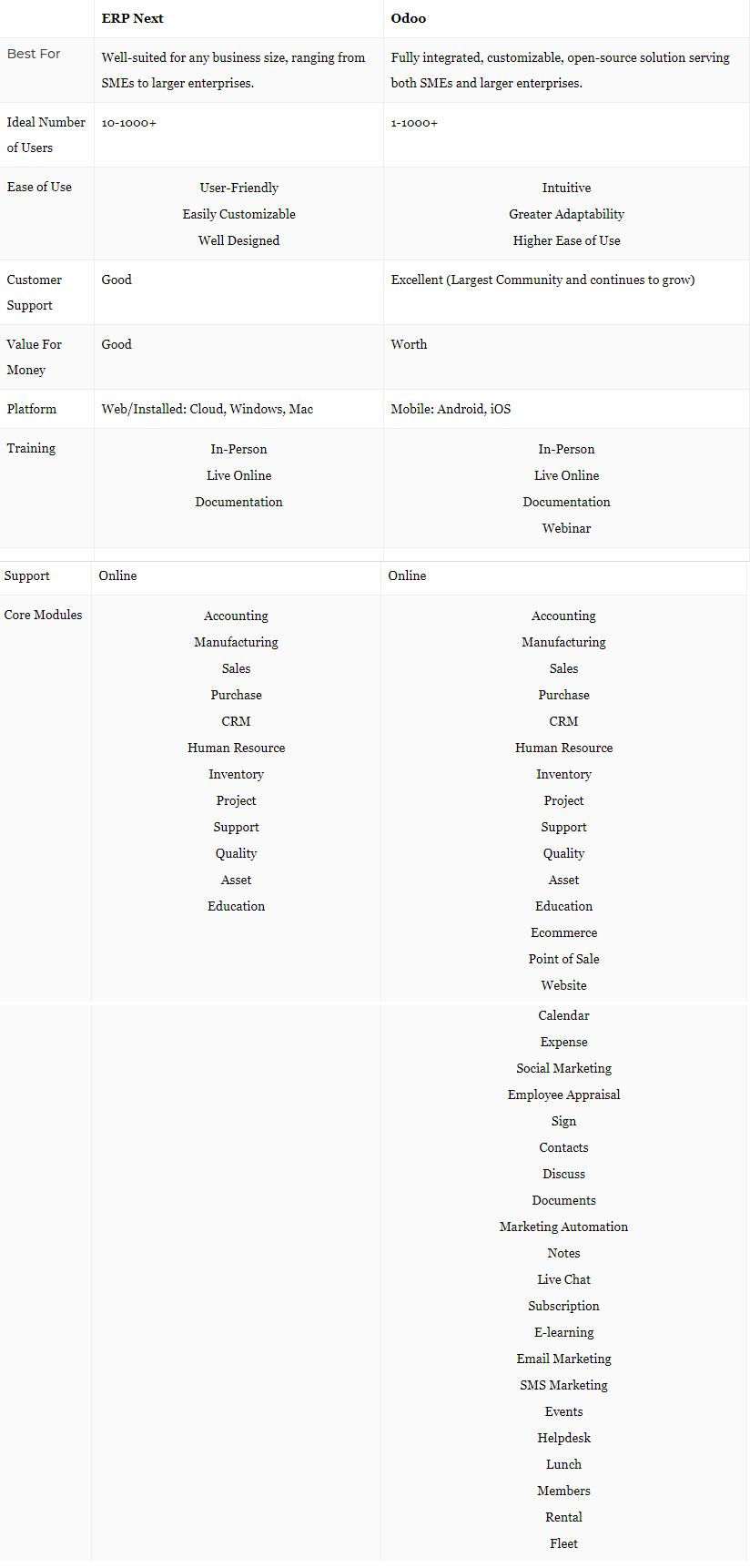
Odoo vs ERPNext - Capterra Review
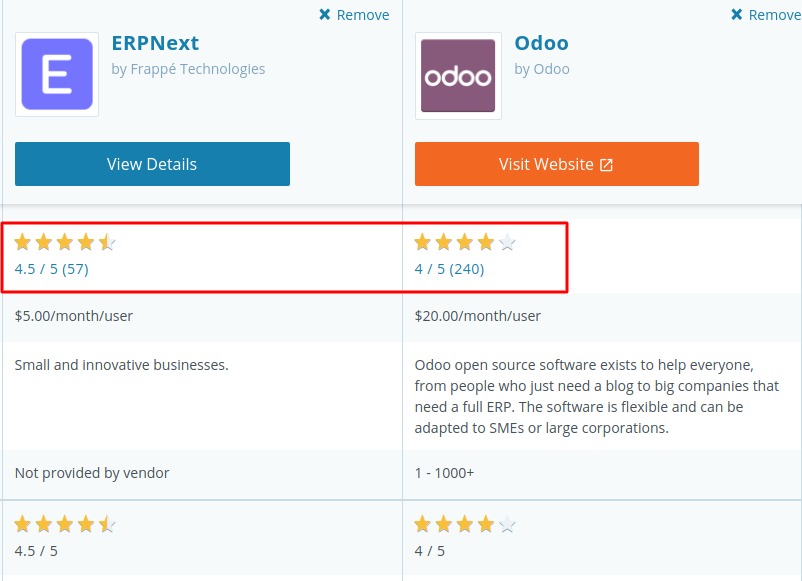
Odoo vs ERPNext - G2 Review
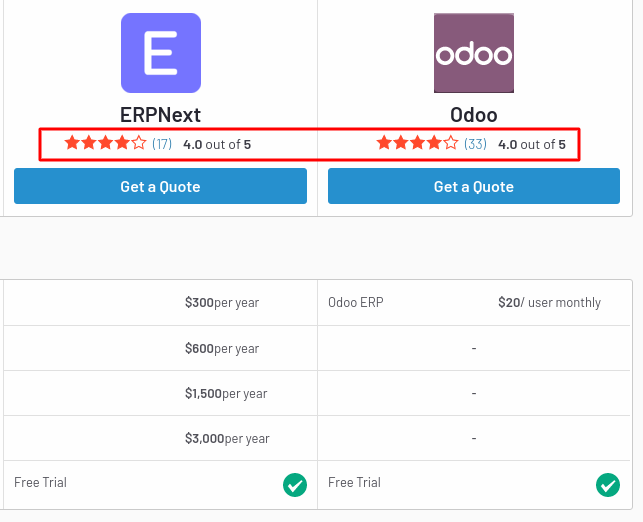
Odoo vs ERPNext - GetApp Review
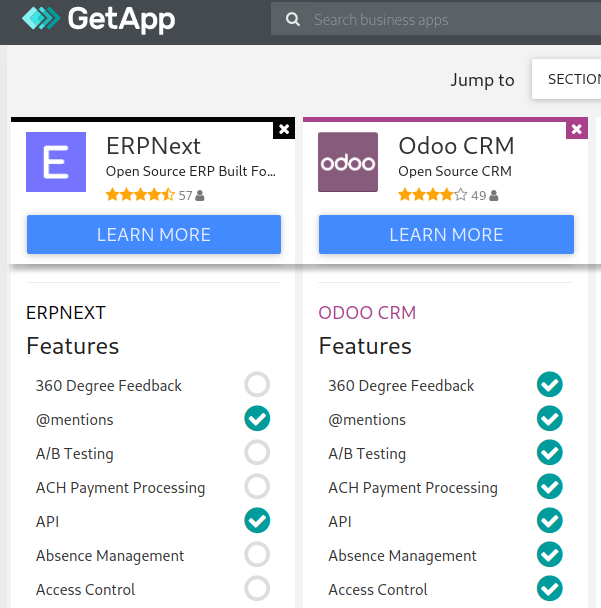
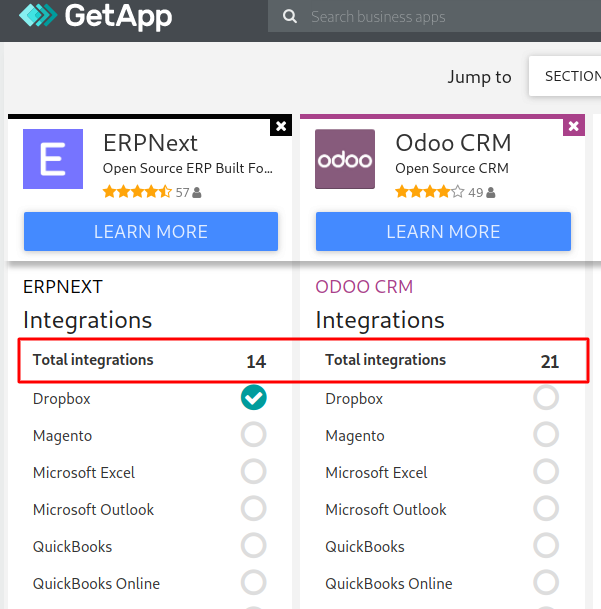
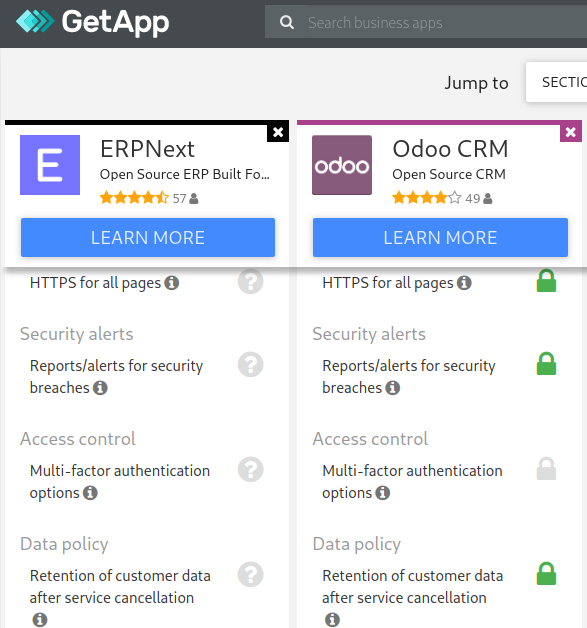
Odoo vs ERPNext - Finances Online Review
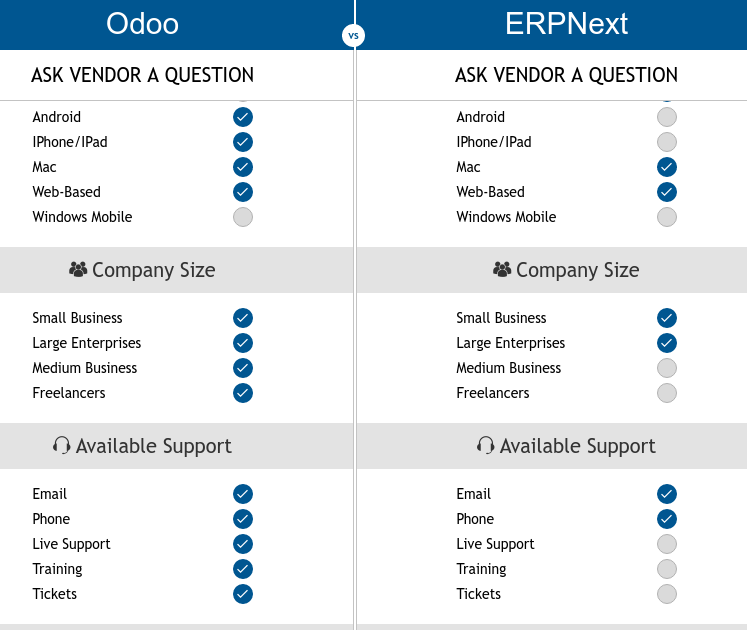
The screenshots provided above are taken from renowned software review sites In fact, you can visit and check those sites for yourself.
Conclusion:
To sum it up, Odoo is best suited for mission-critical purposes compared to ERPNext. With time, Odoo has proven that it can meet any complicated ERP requirements.
So ERPNext would be fantastic if your business requirements are minimal and simple. Odoo will, however, be the right ERP if the specifications are complex.
If you want to integrate Odoo into your business, simply contact us at sales@erpxcloud.com
Latest Posts
50,000+ companies run Odoo to grow their businesses.
Join us and make your company a better place.


